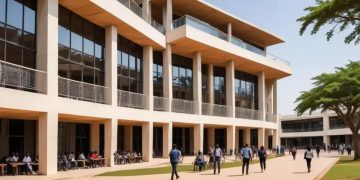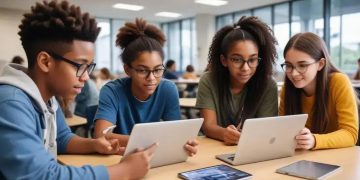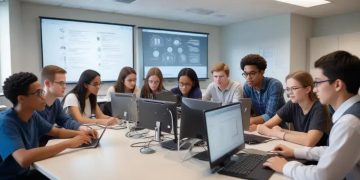London school youth hub: transforming education for young innovators
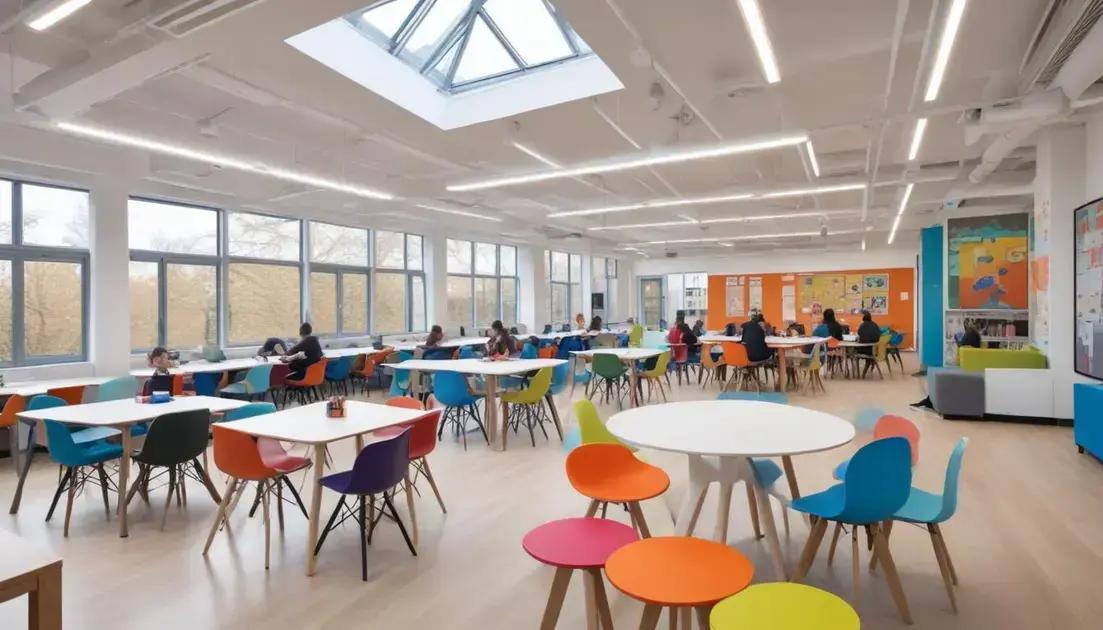
The London school youth hub represents a cutting-edge approach to education, reimagining how young people learn, grow, and prepare for future challenges. Imagine a space where creativity meets opportunity, where students aren’t just passive learners but active creators of their own educational journey.
The evolution of youth learning spaces in london
London’s educational landscape has undergone a remarkable transformation in recent years, with youth learning spaces evolving from traditional classrooms to dynamic, flexible environments. Modern learning hubs now prioritize collaborative and interactive experiences that go beyond conventional teaching methods.
Architectural Innovation
Contemporary youth learning spaces in London are designed with flexibility and adaptability in mind. Open-plan layouts, movable furniture, and technology-integrated zones allow students to customize their learning experience. These spaces break down rigid classroom boundaries, encouraging creativity and independent thinking.
Technology Integration
Digital tools and advanced technologies have become integral to London’s youth learning environments. Smart boards, collaborative digital platforms, and interactive learning stations enable students to engage with educational content in more immersive and personalized ways. Virtual and augmented reality are increasingly being incorporated to provide innovative learning experiences.
These transformed spaces reflect a pedagogical shift towards student-centered learning, where young people are active participants rather than passive recipients of knowledge. The design emphasizes social interaction, collaborative problem-solving, and skill development beyond traditional academic boundaries.
Inclusive Design Principles
Modern youth learning spaces in London are increasingly designed with inclusivity in mind. Accessible layouts, sensory-friendly zones, and spaces that accommodate diverse learning styles ensure that every student can feel comfortable and supported in their educational journey.
key features of modern school youth hubs
Modern school youth hubs represent a revolutionary approach to learning environments, characterized by innovative design and comprehensive support systems. These spaces go far beyond traditional classroom settings, offering holistic experiences that nurture students’ academic, personal, and professional development.
Flexible Learning Spaces
Contemporary youth hubs feature adaptable physical environments that can transform quickly to support different learning activities. Modular furniture, movable walls, and multi-purpose zones allow students to collaborate, work independently, or engage in group projects seamlessly. This flexibility encourages creativity and supports various learning styles.
Technology Integration
Advanced technological infrastructure is a cornerstone of modern youth hubs. High-speed internet, digital workstations, interactive screens, and access to cutting-edge software enable students to develop critical digital skills. Virtual collaboration tools and cloud-based learning platforms make educational experiences more dynamic and interconnected.
Comprehensive Support Services
Beyond academic resources, youth hubs provide holistic support services including mental health counseling, career guidance, personal development workshops, and skill-building programs. These services recognize that student success encompasses emotional well-being, professional preparedness, and personal growth.
Inclusive design principles ensure that these spaces accommodate diverse learning needs, providing accessible facilities for students with different abilities and backgrounds. The goal is to create an environment where every young person feels supported, empowered, and motivated to reach their full potential.
Technology integration in youth educational centers
Technology integration in youth educational centers has transformed traditional learning paradigms, creating immersive and interactive educational experiences that prepare students for a digitally driven world. These innovative approaches go beyond simple computer access, embedding technology as a fundamental learning tool.
Digital Learning Platforms
Modern educational centers leverage cloud-based learning management systems that enable personalized learning paths. These platforms track student progress, provide adaptive learning resources, and allow real-time feedback from educators. Students can access educational materials, collaborate on projects, and engage with interactive content from anywhere.
Advanced Learning Tools
Cutting-edge technologies like virtual reality (VR) and augmented reality (AR) are revolutionizing how students interact with complex concepts. Immersive simulation environments allow learners to explore historical events, conduct scientific experiments, and understand abstract mathematical principles through interactive 3D experiences.
Coding and Digital Skills
Youth educational centers now prioritize digital literacy by integrating comprehensive coding programs and technology skill development. Students learn programming languages, robotics, artificial intelligence basics, and digital design, preparing them for future technological careers. These programs emphasize practical skills and creative problem-solving approaches.
Cybersecurity awareness, digital ethics, and responsible technology use are also critical components of modern technology integration. By teaching students to navigate digital landscapes safely and critically, educational centers ensure holistic technological education that goes beyond technical skills.
Community engagement and social impact
Community engagement and social impact represent critical dimensions of modern youth educational centers, transforming these spaces from mere learning institutions into powerful catalysts for social change and community development.
Local Collaborative Networks
Youth hubs actively create interconnected community networks by partnering with local businesses, nonprofit organizations, and government agencies. These collaborations provide students with real-world experiences, internship opportunities, and meaningful insights into professional environments. By bridging educational institutions with local ecosystems, young people gain practical skills and contribute directly to community growth.
Social Entrepreneurship Programs
Many youth centers now integrate social entrepreneurship initiatives that empower students to develop solutions for local challenges. These programs teach young people to design innovative projects addressing community needs, from environmental sustainability to social welfare. Students learn project management, financial planning, and strategic thinking while making tangible social contributions.
Inclusive Community Development
Educational centers are becoming inclusive platforms that support diverse populations. They offer programs targeting marginalized groups, providing skill development, mental health support, and career guidance. These initiatives help break systemic barriers and create pathways for social mobility, ensuring that educational opportunities reach beyond traditional boundaries.
By prioritizing community engagement, youth educational centers transform from passive learning spaces into dynamic social innovation laboratories. They nurture a generation of socially conscious, skilled, and empowered young individuals ready to drive meaningful societal transformation.
Skill development programs for urban youth
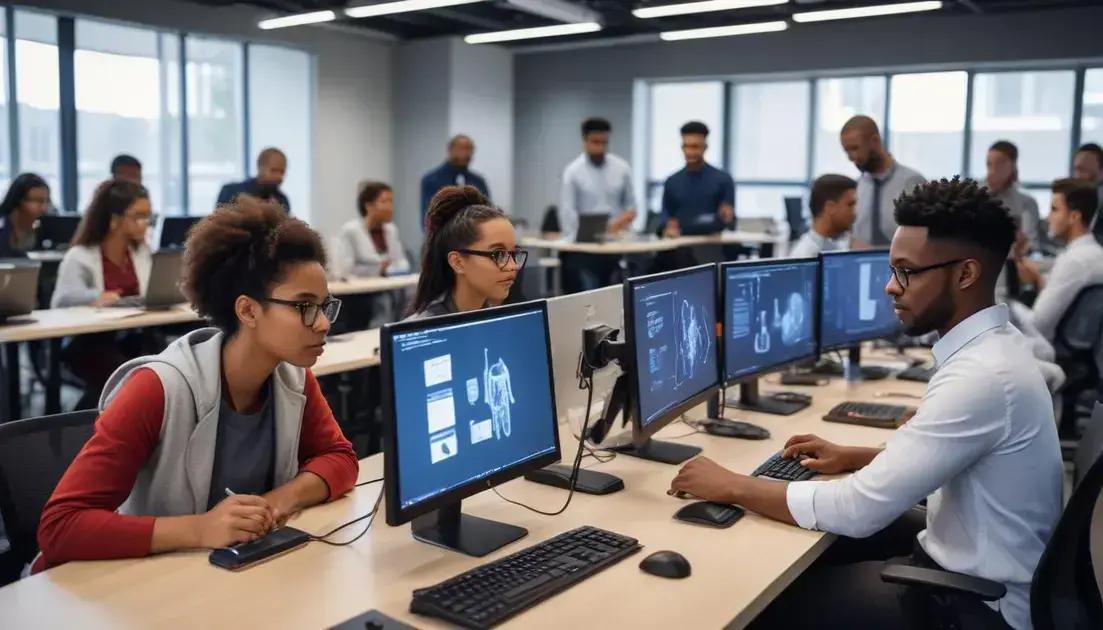
Skill development programs for urban youth have become crucial in preparing young people for rapidly evolving professional landscapes. These targeted initiatives address the complex challenges faced by young urban residents seeking meaningful career opportunities.
Digital and Technical Skills
Modern skill development programs prioritize digital literacy and technical competencies. Students learn coding, data analysis, digital marketing, and emerging technologies like artificial intelligence and blockchain. These programs provide hands-on training that directly translates to marketable skills in today’s technology-driven job market.
Soft Skills and Professional Development
Beyond technical training, comprehensive programs focus on critical soft skills such as communication, leadership, emotional intelligence, and adaptability. Interactive workshops, mentorship programs, and simulated professional scenarios help young urban residents develop the interpersonal abilities needed to succeed in diverse work environments.
Entrepreneurship and Innovation Training
Urban youth skill development initiatives increasingly incorporate entrepreneurship modules. These programs teach young people how to develop business plans, understand financial management, pitch ideas, and navigate startup ecosystems. Participants learn to transform innovative concepts into viable economic opportunities, fostering a culture of creativity and self-driven professional growth.
By providing targeted, practical, and forward-looking skill development, these programs empower urban youth to overcome systemic barriers, create personal economic pathways, and contribute meaningfully to their communities’ economic landscapes.
Mental health support in youth learning environments
Mental health support in youth learning environments has become a critical component of holistic educational approaches, recognizing the profound impact of emotional well-being on academic and personal development.
Integrated Counseling Services
Modern youth learning centers provide comprehensive mental health support through on-site counseling services. Trained professionals offer individual and group therapy sessions, creating safe spaces for students to discuss challenges, develop coping strategies, and build emotional resilience. These services are designed to be accessible, confidential, and stigma-free.
Emotional Intelligence Programs
Innovative learning environments now incorporate structured emotional intelligence training into their curriculum. These programs teach students critical skills like self-awareness, stress management, empathy, and effective communication. Interactive workshops and peer support groups help young people develop robust mental health tools that extend beyond academic settings.
Holistic Wellness Approaches
Comprehensive mental health support extends beyond traditional counseling. Youth learning centers are implementing holistic wellness strategies including mindfulness practices, physical activity programs, nutrition guidance, and stress reduction techniques. These multifaceted approaches recognize the interconnected nature of mental, physical, and emotional health.
By prioritizing mental health support, educational environments create inclusive, supportive spaces that empower young people to navigate complex emotional landscapes, build resilience, and develop healthy coping mechanisms for long-term personal and professional success.
Entrepreneurship training for young londoners
Entrepreneurship training for young Londoners has emerged as a transformative approach to empowering the next generation of innovators and business leaders in one of the world’s most dynamic urban ecosystems.
Startup Incubation Programs
Youth entrepreneurship initiatives provide comprehensive startup incubation programs that guide young innovators from concept development to market launch. These programs offer mentorship, seed funding opportunities, and access to professional networks. Participants learn to develop business plans, conduct market research, and navigate the complex landscape of venture creation.
Digital Innovation Workshops
Modern entrepreneurship training focuses on digital innovation and technology-driven business models. Workshops cover emerging technologies like artificial intelligence, blockchain, and sustainable tech solutions. Young entrepreneurs learn to identify market gaps, develop scalable digital solutions, and understand the intersection of technology and business strategy.
Financial Literacy and Funding Strategies
Comprehensive programs emphasize critical financial skills, teaching young Londoners about investment strategies, financial planning, and alternative funding sources. Students learn to pitch to investors, understand venture capital mechanisms, and develop sustainable financial models for their entrepreneurial ventures.
By providing targeted entrepreneurship training, London creates a robust ecosystem that transforms young people’s innovative ideas into viable businesses, driving economic growth and fostering a culture of creativity and strategic thinking.
Sustainable and inclusive education models
Sustainable and inclusive education models represent a transformative approach to learning that addresses diverse student needs while promoting environmental and social responsibility.
Adaptive Learning Frameworks
Modern educational models prioritize personalized learning experiences that accommodate individual student abilities, backgrounds, and learning styles. Technology-enabled adaptive platforms allow students to progress at their own pace, ensuring that no learner is left behind. These frameworks use intelligent algorithms to provide customized content and support.
Environmental Integration
Sustainable education models embed ecological awareness across curriculum design. Students engage with environmental challenges through interdisciplinary projects, learning about climate change, renewable energy, and sustainable practices. Hands-on experiences like community gardens, recycling programs, and carbon footprint tracking help students become active environmental stewards.
Accessibility and Representation
Inclusive education goes beyond physical access, focusing on creating learning environments that represent diverse cultural backgrounds, learning abilities, and socioeconomic experiences. Curriculum design incorporates multiple perspectives, adaptive technologies for students with disabilities, and scholarship programs that support underrepresented communities.
By reimagining educational models, institutions can create more equitable, engaging, and responsive learning ecosystems that prepare students to address complex global challenges while promoting personal and collective growth.
Transforming Youth Education: A Path to Innovation and Empowerment
London’s school youth hubs represent more than just educational spaces—they are dynamic ecosystems of learning, innovation, and social transformation. By integrating advanced technologies, comprehensive support services, and inclusive approaches, these centers are redefining how young people prepare for future challenges.
The future of education is not about traditional classroom learning, but about creating holistic environments that nurture creativity, technological skills, mental well-being, and social responsibility. These youth hubs demonstrate that education can be a powerful tool for personal growth and community development.
As we move forward, the key lies in continuously adapting these educational models to meet the evolving needs of young learners. By prioritizing technology, mental health, skill development, and inclusive practices, we can empower the next generation to become innovative, compassionate, and resilient leaders.
The journey of educational transformation is ongoing, and London’s youth hubs are leading the way in showing how learning can be a dynamic, supportive, and transformative experience.
